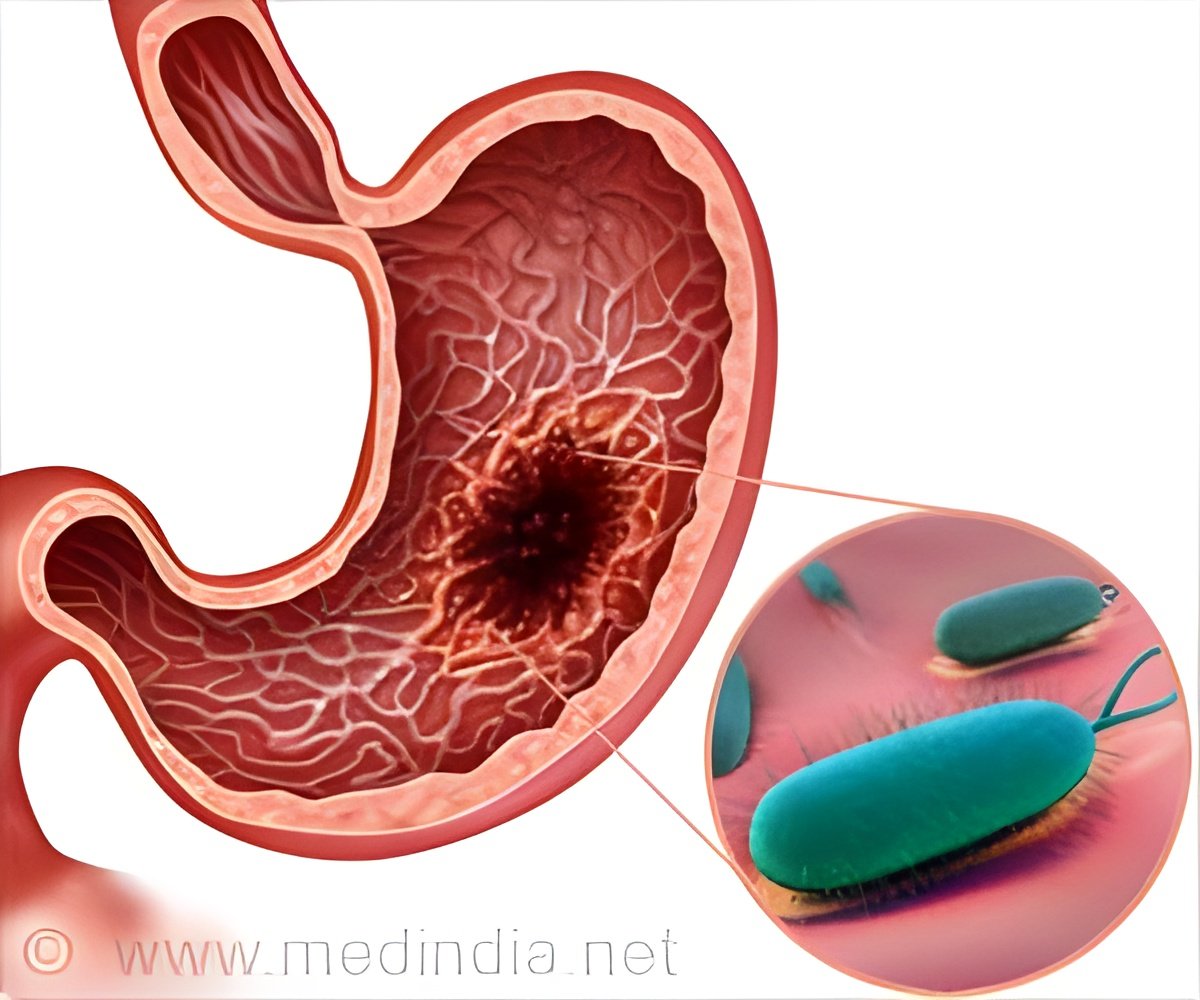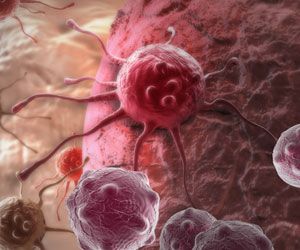Stomach cancer is more likely to develop even in young people living under-40s, reveals a new study.

‘Stomach cancer is more likely to develop even in young people living under-40s. However, timely diagnosis, treatment, and adequate precautions can lower the risk of stomach cancer.’
Read More..




"At our centre, we have seen a 120% increase in gastric cancer in younger patients in the last 12 years and this increase has been mainly in female patients who typically present with more advanced disease and worse prognostic indicators than men, with an adverse impact on survival," said study author Dr German Calderillo-Ruiz, from the National Cancer Institute, Tlalpan, Mexico.Read More..
In the Mexican study, over half of patients under 40 with gastric cancer were women, in contrast to previous research, which has typically shown that gastric cancer is most common in men. Female patients in Mexico were more likely to have diffuse-type and poorly differentiated tumors and later stage disease at diagnosis than male patients, with a significantly lower overall survival.
"The lack of financial resources may impact on women's behavior of delaying pursuit of medical care when gastric symptoms appear. We hope this research will encourage clinicians and patients to be more aware of the risk of gastric cancer in younger people and, in particular, to encourage women with gastric symptoms to seek medical help sooner," said Calderillo-Ruiz.
Commenting on the implications of the research, Dr Rodrigo Dienstmann, from Vall d'Hebron Institute of Oncology, Barcelona, Spain, highlighted the combination of genetic and environmental factors that contribute to gastric cancer and the fact that young people with gastric cancer have more aggressive disease which is less responsive to curative treatment.
"We cannot change the genetic factors, but we can act on the unhealthy diet, obesity, and untreated Helicobacter pylori infection, which increase the risk of gastric cancer. Helicobacter infection can cause chronic inflammation and lesions that are precursors to gastric cancer but, once diagnosed, can be cured with a combination of antibiotics and drugs to reduce stomach acid," said Dienstmann.
Advertisement
Following the latest research in Mexico, epidemiological and molecular studies are being conducted in Latin America and Europe to investigate the different molecular subtypes of gastric cancer in the regions and improve our understanding of risk factors in these populations.
Advertisement
In the Mexican study, data from 2,022 patients with gastric adenocarcinoma diagnosed between 2004 and 2016 were analyzed, of whom 290 patients (14%) were under 40. Of these, 54% were women, and 46% were men. Women had higher levels of factors indicating poor prognosis than men: diffuse-type tumour (68% vs 32%; P=0.127), ring-seal cells (76% vs 69%; P=0.049), poorly-differentiated (89% vs 84%; P=0.014) and higher prevalence of stage IV disease (59% vs 41%; P=0.011).
Overall survival was a median of 7 versus 8 months for women and men respectively (P=0.03; hazard ratio (HR) 1.29; 95% CI, 1.05-1.65). Median overall survival was significantly worse in patients with tumors at the oesophagogastric junction: 7 vs 14 months (P=0.23; HR 0.68; 95% CI, 1.05-2.688) and more advanced disease: clinical-stages I-III, locally advanced and stage IV 33, 12, and 5 months, respectively (P=0.001; HR=2.28; 95% CI, 1.72-3.01). Independent predictors of overall survival were maintained in a Cox-Regression analysis: gender (P=0.038, HR 1.29, 95% CI 1.01-1.65), primary tumor (P=0.02, HR 1.68, 95% CI 1.05-2.68) and clinical-stage (P=0.001, HR 2.28, 95% CI 1.72-3.01).
Source-Eurekalert















